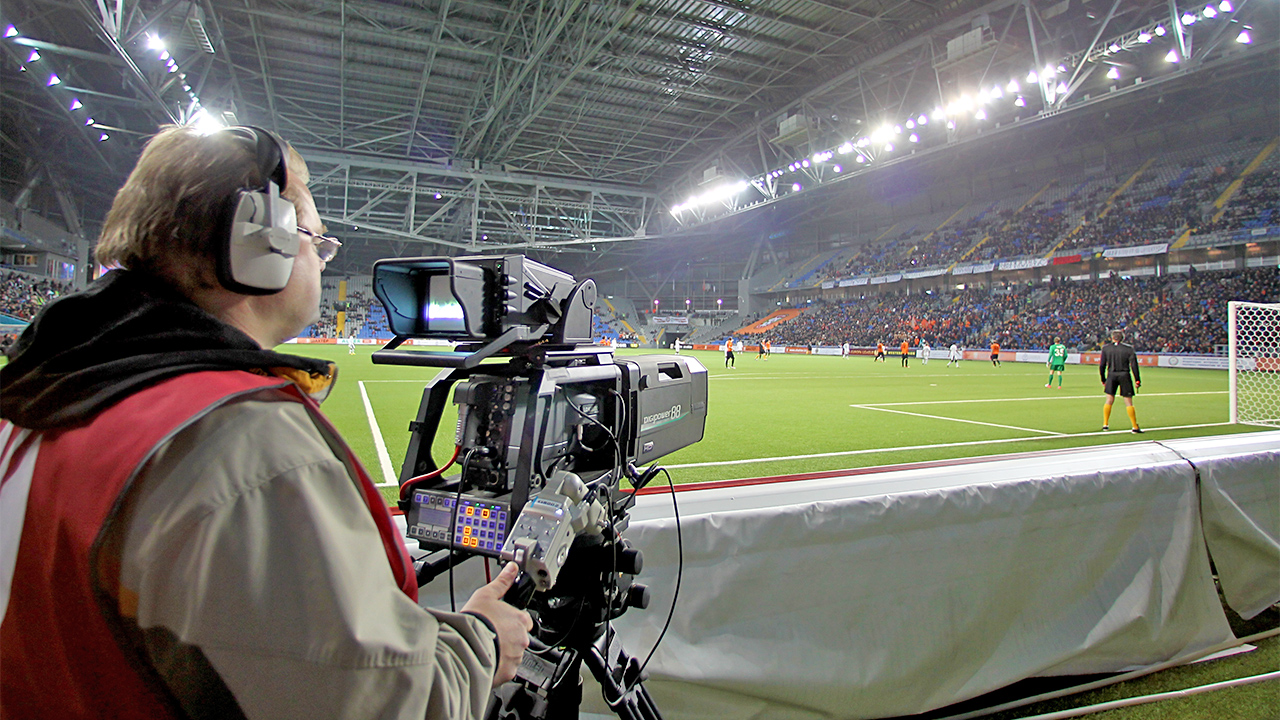
Replay: With the Olympics coming to a close, we thought it was worth highlighting the skills of the camera operators that track every jump, twist, sprint, throw, trick, and more in our brief tribute to sports camera people everywhere.
For a long time, it's been common for camera crew used to drama, commercials and features to take a slightly superior attitude to people who work in live television. After all, in drama, the sensors are bigger and getting even bigger. Drama sets are commonly lit to rather lower light levels than TV studios and so the aperture is likely to be larger. Often, a dramatic camera is more likely to be on the move during the shot than in live TV. And the demand for – let's say – prettiness is arguably higher.
Consider the situation faced by someone shooting soccer or, worse, golf (both of which are Olympic events). The demands are extreme. In golf, a 45-gram golf ball experiences anything up to 9000 newtons (over 2000 pounds) of force during the half a millisecond of acceleration – depending on who you ask. A live camera operator must follow that ball as it leaves the tee, flies through the air for many seconds, and then – without any warning that the ground is approaching – keep it in the frame as it impacts, perhaps bounces, then rolls.
Jedi skills
All this must be done while maintaining focus and without any ugly corrections at either launch or landing, and it gets worse. In a live production situation, someone else will be managing exposure, but live TV requires that the operator operates the camera, zoom lens and focus. That lens, by the way, may be something like the Fujifilm UA107x8.4, and, yes, that means the maximum focal length is 900mm – or 1800mm with the extender, which will demand a lower stop to let enough light in.
Vinten, manufacturers of finely-balanced precision tools for the most exacting types of live television production, hold really good OB camera operators in such reverence that they've invited them to be representatives on the booth at NAB, explaining the difference that a few grams of control pressure, either way, can make.
Such long lenses for super-35mm cameras barely exist, and anyone asked to pull focus will be doing exactly that – pulling focus, and nothing else. That person will have had one or more rehearsals and know exactly what to expect. There's no criticism of drama crews inherent here; we're talking about very different jobs. Most soccer matches will suffer the occasional focus buzz, and that's life, whereas the same is harder to overlook in a high-end feature film. Either way, it's clear that the images associated with a live outside broadcast are the result of a lot of judiciously-applied skill which is at least on par with any job on a feature film set.
Experienced people with a drama background will usually, if pressed, be cautious enough to agree with that statement, but anyone who doesn't is welcome to try following a rugby player on a 500mm lens, operating and pulling focus to a standard compatible with 4K television. So, while there's still beer available to drink, let's raise a glass of it to the live OB crews who make all this seem so very everyday.
tl;dr
- Following a fast-moving golf ball or soccer ball with precision and without any errors is hard, very hard.
- Live TV camera operators are responsible for managing the camera, zoom lens, and focus, which requires immense skill and precision, especially when using long lenses.
- The challenging nature of live outside broadcasts requires a level of skill and expertise that is often underappreciated, and the individuals working in this field deserve recognition for their exceptional work.
Tags: Production


Comments